Why Don’t Superheroes Change the World?
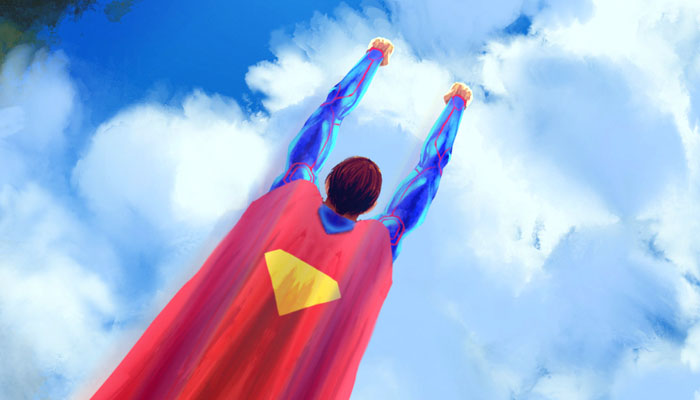
Some stories take place in fantastic worlds very different from our own, exciting and astounding audiences. Other stories take place in worlds so realistic we can believe they are happening to real people in real life. Superhero stories are somewhere between these two extremes: most of them take place in a world extremely similar to Earth but focus on people with extraordinary abilities.
This raises the question: how can worlds containing superheroes be so much like the real world, which has none? Wouldn’t science, technology, and medicine progress faster for everyone, not just the genius billionaires? Wouldn’t power shift away from governments and monarchies and toward the superpowered people? Why don’t superheroes fundamentally change the world?
Modern Myths of Gods Among Us
The earliest predecessors to modern superheroes were the gods of ancient mythologies. The Greeks believed the gods and goddesses lived on Mount Olympus, and they told stories of Olympians such as Zeus, Hermes, and Athena walking the Earth and interacting with mortals. The most common result of these mythical interactions was love affairs and half-divine children like Hercules. These children would usually go on to become heroes, slaying monsters and being eternally commemorated in constellations.

Greek myths also depict gods dramatically affecting the world. Persephone being trapped in the underworld for half of every year explains the changing of the seasons. The Trojan War, according to legend, was started by Aphrodite trying to set up a married woman with another man.
Ancient Greeks believed the actions of the gods had a major impact on the world. They explained thunderstorms by saying Zeus was angry, they claimed gods shot them with arrows to make them fall in love, and they even blamed wars on the antics of the gods. They paid homage to the gods out of the belief that they would receive victory in war or a good harvest in return.
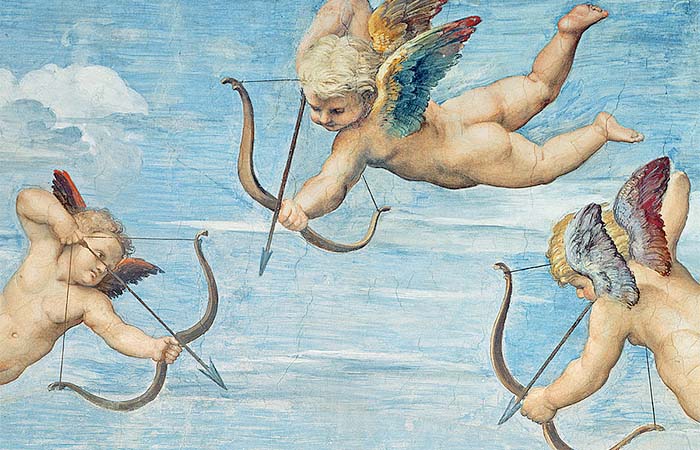
Ancient myths demonstrate people’s belief that beings as powerful as the gods would inevitably impact the world where they existed. However, a significant difference between the Greek gods of myth and modern superheroes is the gods were terrible people. Many myths paint them as weak of character; they repeatedly had affairs with mortals and interfered in each other’s divine plans despite rules prohibiting these things. Most humans who offended them ended up transformed into animals for the rest of their lives or doomed to torturous fates after their deaths.
Superheroes, on the other hand, are known for following rules and promoting mutual respect. The stark contrast between the worlds they protect and the world the Greek gods rule over shows a great reason why superheroes should restrain themselves. They protect continuity by avoiding acting like gods.
Marvel: World of Open Secrets
Some may consider the “superhero worlds sticking to the status quo” phenomenon a plot hole, but solutions are often presented within the universe. In Marvel Comics, the very sources of things that could change the world, like the nation of Wakanda or the mutant population, intentionally hold themselves back.
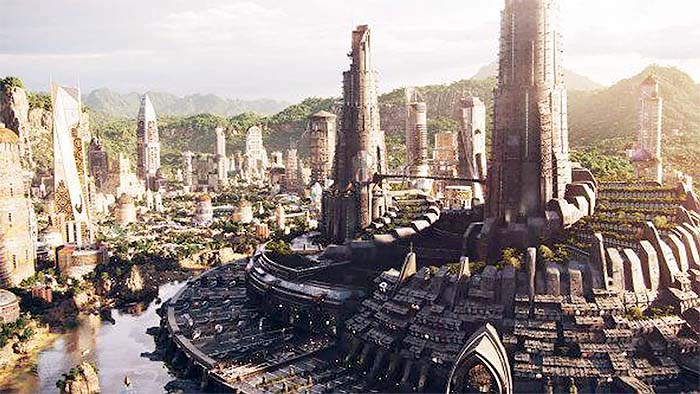
In the Marvel movie Black Panther, the fictional country of Wakanda has technology that could revolutionize every part of the world, from life-saving surgery to fashion. The leaders of Wakanda do not share this technology with the rest of the world, however, because they have seen how people have handled the resources they do have: almost always fighting each other over something. This same mindset can be applied to most of the well-meaning characters who keep their world-changing secrets to themselves. It is the same philosophy that often motivates superheroes to keep their identities secret.
In the Marvel universe, mutants are born with superpowers and ostracized for it. Professor Charles Xavier provides a safe haven for young mutants at his School for the Gifted. Xavier’s rival, Magneto, rules a country called Genosha, which is also a sanctuary for mutants. Another group calling themselves the Morlocks hides in sewers. These mutants could use their powers to take whatever they want, but most of them choose to hide away. Fear of being judged is stronger than any desire they may have to rule the world.
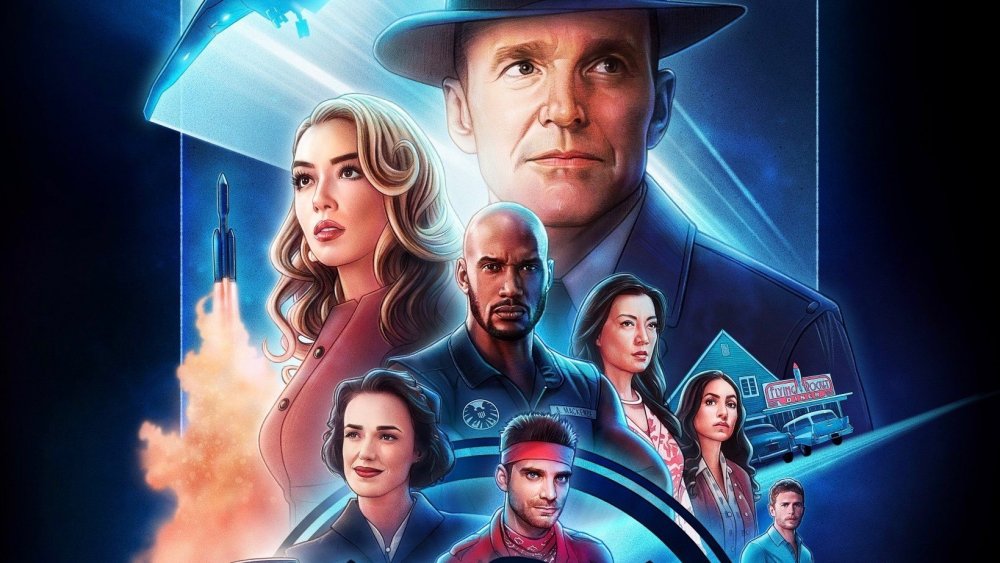
The government agency SHIELD also prevents the world from changing too much as the super-people population rises. In the pilot episode of Agents of SHIELD, an agent shares what is effectively the agency’s mission statement: “We’re the line between the world and the much weirder world. We protect people from news they aren’t ready to hear. And when we can’t do that, we keep them safe.”
The objectives of organizations like SHIELD include keeping alien technology away from the public, for their own protection, and monitoring and sometimes imprisoning superhumans. If it wasn’t for these organizations, the public would know much more about superpowered phenomena than they already do, but there would also be many more dangerous superpower events. These worlds would not get the chance to be changed if they were destroyed by supervillains or naïve civilians with alien technology.
The Much Weirder World
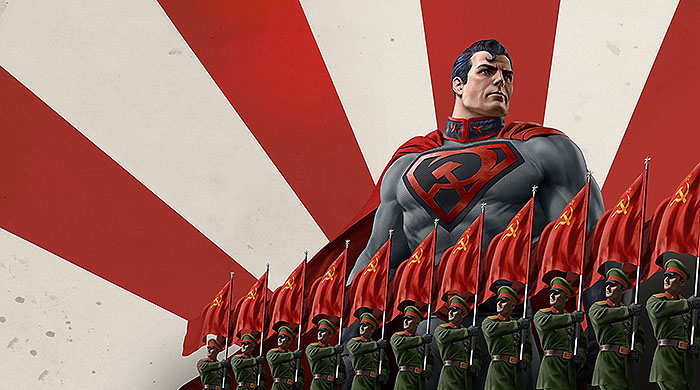
Some comic book stories have explored the possibilities of what would happen if superpowered phenomena were set loose to alter the world. Some are “what if” versions of stories we already know, like Marvel or DC Comics. For example, an alternate version of Superman who was raised in Soviet Russia remakes the world according to Soviet values in Superman: Red Son.
Watchmen by Alan Moore explores a full-on alternate history with superheroes in it. Masked vigilantes insert themselves into several historical events, and a nuclear-powered superhero, Dr. Manhattan, helps America end the war in Vietnam in 1971. Rather than taking control of the world like a god, Dr. Manhattan leaves Earth, feeling too out-of-place among humanity to be their savior or their ruler.
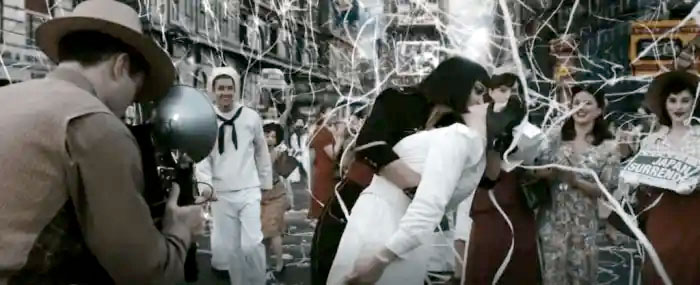
Both Watchmen and stories of Superman have a super-genius antagonist character who mistrusts the god-like protagonist: Ozymandias and Lex Luthor, respectively. They both believe it is more likely for a quasi-deity like Superman or Dr. Manhattan to have a negative long-term impact on the world and humanity than a lasting benevolent impact. These antagonists seek to dethrone the protagonists through classic supervillain antics, in Lex Luthor’s case, or breaking humanity’s faith in its quasi-deity, in Ozymandias’ case.
Characters like Lex Luthor and Ozymandias have the same goals as organizations like SHIELD: preventing super-beings from changing the world around them because they believe maintaining the status quo is for the best. With characters like these holding back the forces of change, it is much more believable that these worlds remain so similar to the real worlds.
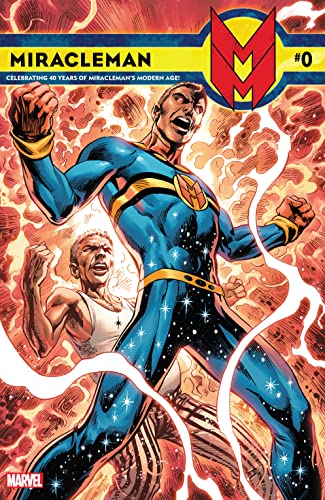
In 1984, Alan Moore released a comic book series called Miracleman, which began as a soft reboot of a classic story from the 50’s and ended as a jarring deconstruction of the superhero genre. It explored a realistic take on the effect of superheroes on the world, culminating in a pseudo-utopia ruled by god-like super-beings. However, the series’ finale also ended with dramatic violence as a super-being massacred several mortals while receiving nary a scratch.
Stories like Miracleman suggest that Lex Luthor and Ozymandias are right to assume that super-beings would squash humanity like insects if left unchecked. This may be more realistic than the mainstream superhero stories we are familiar with, but many audiences would dislike such a cynical outlook.
Supervillains Change the World
It is a significant trend across all genres of fiction that heroes are reactive to villains’ actions. Classic superheroes play the role of a protector, and until the city or the world are threatened, they are content to live out civilian identities. Then supervillains come along with goals and desires, and if they get what they want, the people under the hero’s protection will be harmed.
The other result would be the world changing. For example, many supervillains are mad scientists who believe in “progress” through bizarre science experiments with little regard for public health and safety. Their visions for the world include humanity being enslaved by robots or turned into monkeys. By thwarting these plans, superheroes maintain the status quo.
Superheroes may have goals and desires that are more benevolent, but they do not proactively try to change the world around them for a couple reasons. One is that people tend to fear the unknown, so the general public may hesitate to accept help from these extraordinary people. The other reason is that the heroes value humanity’s free will and do not want to make significant choices for them. They believe people can make progress on their own, even if it takes a while, and they hope to inspire people to do so.
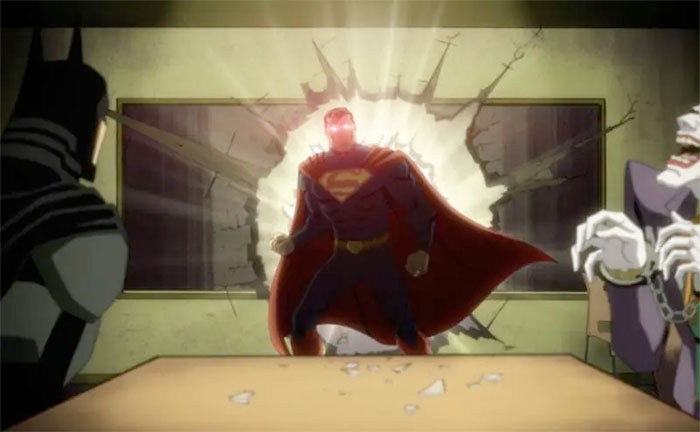
When superheroes deviate from this trend, they become a bit like the supervillains they fight. A notable example is Injustice, the video game/comic book series/movie depicting an alternate DC Comics universe. This world’s version of Superman, suffering from traumatic grief, seeks to prevent crime and conflict on Earth by executing criminals instead of sending them to prison. The heroes who disagree with him launch a revolution against him because they consider him just as bad as any supervillain, despite his best intentions.
Stick to the Status Quo
Usually, superheroes play the role of reactive protector because that is the role the writers wrote for them. Writers know a world where superheroes have preemptively eradicated crime would not interest readers. A similar mindset explains why the genius scientists who routinely defy physics have not eradicated disease in their universes. Mr. Freeze, one of Batman’s villains, is pushed to a life of crime when his wife is dying of an incurable disease. Heroes and people close to them get cancer, and they apparently can’t fight it as easily as they fight alien invaders.
The direct answer to this apparent problem is it wouldn’t be interesting if superheroes cured disease. It is much more interesting to watch heroes deal with the reality of disease the same way readers deal with it in real life. Heroes facing their own mortality and the mortality of their loved ones choose to continue making noble decisions, despite having valid reasons not to, and readers can be inspired to do the same thing.

The same philosophy applies to the various other problems writers do not allow their superhero characters to solve, as well as the various advances superheroes are not allowed to make. Changing the world too much would likely alienate readers because the heroes would be too unrelatable if they solved their problems so easily. When they face real-world scenarios, from disease to paying rent, and don’t solve them immediately, they inspire readers who deal with the same scenarios without superpowers.
Stories where superheroes are allowed to change the world demonstrate that, although it may be more realistic, it wouldn’t necessarily be good for the world or humanity. Characters like Lex Luthor and organizations like SHIELD understand the risk of this possibility and try to prevent it. Even the superheroes themselves often sacrifice the potential benefits of proactively changing the world in order to avoid the downsides.
In the end, superheroes are meant to be inspirational. It’s easier for them to inspire audiences when some of the problems they deal with are the same problems we deal with. We may not be able to do everything Superman can do, but we can use the gifts and talents we have to help people the same way he does. We can make our world better little by little, just like our heroes.
What do you think? Leave a comment.



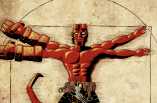
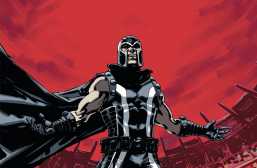
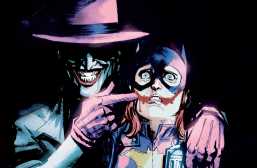
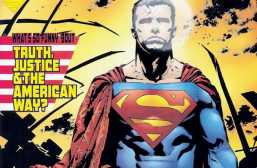
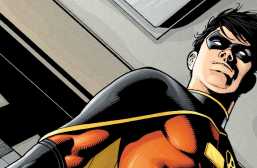
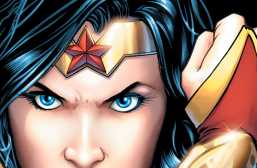
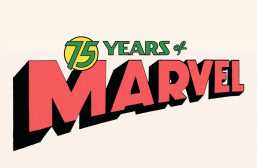
I suppose this is a fine write up for the topic but the meat of what are the heroes fighting for was more interesting to me. The ideas they represent. You bring up the fact that heroes can’t for example cure cancer except many times in Marvel including in the Hudlin run of Black Panther cancer has not only been cured but the cure was being withheld due to people in Wakanda’s xenophobia and that’s just a very interesting thing to do in your story but it gets used as a one of line and never brought up again in the universe.
The Batman for example is a crime fighter but the crime is either street level or intergalactic. There’s a bad guy or a group of bad guys and even if there’s a rich bad guy it’s individualized and abstracted away.
It’s understood that they’re that way because the writers wrote it that way, but I wonder why it is under explored about the pen holders. Why do they write these heroes the way they do.
Here’s a question if super heroes were real what party would they be in please be respectful this is for fun. Spiderman would be a dem Superman a rep wonder woman a dem iron man a rep hulk a dem Batman a rep the flash a dem green lantern a dem who am I missing.
There have been many stories where superpowered beings change the world, but mostly they end up as elseworlds or alternate universe stories
Off the top of my head, Marvel has already done…
Age of X-Man, Age of Apocalypse, Age of Ultron, Powers of X, House of M, Days of Future Past, the entire current Krakoa era of the X-Men is basically them slowly changing the world (introduction of a super medicine, terraforming Mars)
The reason why it never becomes the “main continuity” story is because these worlds become less relatable to readers.
Government agencies would probably hire them and use them for covert operations.
That’s exactly what happened in Watchmen.
I have a feeling that a lot of people would either try to exploit their powers to get ahead in life, like using future vision to win the lottery or the ability to duplicate objects to have infinite money.
Most of these people may not be just straight up evil , but on the other hand they wouldn’t be virtuous either. they would just use them to do whatever the hell they wanted.
The Boys is the most realistic in terms of why don’t Superheros change the world. Have you watch it Noah? It’s very good and interesting for this topic.
Excellent point. In The Boys, superheroes don’t champion social change because the Status Quo gives them fame, money, and various other perks. They don’t actually care about people. It’s certainly realistic, given human nature, but superhero fans tend to center the discussion around more popular superhero universes like Marvel and DC, in which superheroes do care about people.
If Superheroes would rule the world, half of us would be snapped away.
Super powers? We should be studying why people seem to be getting more stupid by the day. I’m convinced it is subliminal images being transmitted through the TV.
So how close are we to having superheroes today in the real world?
As soon as nano technology develops sufficiently enough for us to have billions of little robots whizzing around our body we’ll have super human abilities…. Possibly not that far away. A few decades maybe?
The computer game Deus Ex, which expands on this line of thought, seems very plausible to me
Well, what superpowers do we not already have?
Humans can sense magnetic fields, albeit poorly. Nothing stops you from improving on that.
The deepest a human has dived and returned to the surface without extra oxygen or protection against high pressures is 800′. That’s 32 atmospheres.
The longest a person has actively swum underwater on a single breath is 15 minutes. Without moving, the record so far is 20 minutes. You can do a lot in 15 minutes.
The longest a person can survive with unsupported hibernation is 2 hours.
The human nose is capable of distinguishing something like 32 trillion scents.
To the average human being, these sound like superpowers, but it’s all stuff the average person can achieve.
There are a few superpowers that could be genetically engineered in – better eyesight over a wider range of frequencies, a larger brain with tunable speed optimizations, that sort of thing.
Nano-tech-wise, the only superpower needed is a nanobot in an empty vacuelle that has error-correction codes for individual genes and the capacity to suspend, modify and reboot cells as needed. I shall call this “regeneration” and would limit each person to twelve full-body reboot licenses.
The super power we already have that we could use to develop more (without, paradoxically, trying to develop it) is our intuition – our ability to accurately put together things we didn’t know we knew.
The Vision is actually partially organic. Superman is an alien and not really human (although he looks like one), Thor is a god (not really alien.) Batman and Green Arrow don’t have any superpowers (so should they be considered “superheroes” instead of just heroes in costume?)
One of the key problems for me with the whole superhero genre is that there is no consistency. Superhero X will have a certain level of ability and power one minute and the next it will be vastly more – or even vastly less – for no reason (except perhaps for the “plot”). This is particularly egregious when she have superheroes battling each other because normally they are mismatched and so one suddenly becomes much weaker and one much stronger.
One should perhaps not expect consistency when the whole concept of superpowers is ridiculous but still, the best Sci-Fi can have main ideas that are not physically realistic but after they have asked for the initial suspension of belief they at least stick with the rules created and don’t constantly bend them at a whim.
A kind of Parkinson’s law for superpowers. As in “Superman’s abilities expand to (only just) defeat the available threat.”
Believing in Heroes is good but after point I think we lost the true meaning of the word “Hero”. The ancient writers said that a true Hero can die while achieving something. A true Hero is not perfect and above all not divine. Of course you could say that Batman is not divine but yes he is, he is a millionair, a genious and handsome 6’4″ guy, no one is like that. The thing i miss from todays Heros that they to much a dream.
Most TV heroes lack realism. It’s logical that to be called a hero, you’ll need to be something more than usual… But it seems like that in TV heroes are “too much” more than usual, more than normal. Maybe that’s the reason why kids are more prone to idolize those kind of heroes.
I believe Disney’s Hercules said it best “A true hero isn’t measured by the courage or strength but by the strength by his or her heart.” This is what heros today are lacking it has nothing to do with realism or logic, in fact I believe shoving too much realism into them is what is wrong. In order to be hero you have to be optimistic or else nobody would believe in you and neither would you believe yourself and only be logical for when it is needed. They aren’t suppose to be too realistic as these heros are symbols of hope.
Even Batman isn’t that logical he does what he does based on an ideal that he truly believes in. Which is why everyone keeps arguing about him not killing or using guns because if he does Batman then fails in his mission.
I’ve always wondered how a super powered child or teen would fair in school. If they don’t have full control over their abilities, and say get pissed off at someone making fun of them, will they think it’s ok to rip somebody’s arm off as an immediate reaction? Will they have a hard time trying to care for “lesser life forms” (humans)? Not to mention their parents’ home insurance would greatly skyrocket depending on the nature of the kid’s powers.
That’s why, I hope children and teenagers won’t get superpowers.
In the real world, the governments would want to both control them and have the ability to counter them. Would be like if nukes gained consciousness…government wouldn’t allow them to just do their own thing.
A lot of them would be in area-51 type bunkers getting dissected or experimented on as well.
You do know you have to account for villains who don’t give two fucks and this is real life and they will get anything done ASAP! no script, no plot armor, plans kept secret and no asinine talking about how they’re going to destroy the world. So do you really think the majority of heroes or any one with powers would be “dissected” and “experimented on” in Area 51 while the world burns because a villain like Red Hulk could literally destroy the entire country himself if we’re speaking realistically. Who’s going to stop him? NO ONE. So let the good guys do their thing no need for the government to do something like that and besides they gonna capture no one tbh.
Honestly, give me Dr. Manhattan’s powers and I would probs do what he did in a sense, travel to a different planet and create life how I’d like.
Watchmen got it pretty right: they would be used as weapons.
Read The Authority. They change the world, politics are involved, stuff happens.
Batman v Superman touched on the topic flightly. It would have a domino effect. Chaotic and catastrophic.
Imagine if Superman was real… all the atheists would all of a sudden become believers in GOD! A new religion would be born. Although most would probably worship him some would reject him and view him as the devil since people fear what they can’t understand.
Superman is more of a threat to the Earth than a protector. How many villains and even armies have come to Earth just to find HIM? He has a squadron of lookalike robots in his Fortress of Solitude and while they might still attract attention, they’re not the Man of Steel himself. They can do virtually anything he can do so all of the saving of lives would be in place but they might not attract the host of enemies that hunt Superman for personal reasons.
Bruce Wayne could do more good with his billions than Batman ever could. Instead of beating up a handful of thugs every night or thwarting a dastardly villain’s plan (again, many are in Gotham JUST because they hate Batman!), Bruce could enact real social change that would (based on many studies done over the past few decades) reduce crime much more than scaring the bad guys would.
Don’t get me started on Spider-Man and how stupid Peter Parker was.
Well I think most people would know he’s an alien.
Their very strength would invite challenge, the challenge would then incite conflict, and conflict breathes catastrophe…
Most people don’t understand. It’s not an idol and it’s not worship. They’re images/archetypes and they represent the best in us and what we could be. Not the powers, but the moral and psychological courage.
Take Superman for example. Sure his powers are “god like” but that’s not the point of Superman. The point is in his character, it’s in his morality. He represents the power to be more, to do the right thing even when it hurts. He represents the choice to do and be good not because he has to, but because he can and therefore he believes it’s his duty to help those more vulnerable than he is. He represents the best in humanity. What’s more is that he could be a monster, just like we could be, but he chooses another path, the path of the hero, just like we can. That’s the moral choice we all have before us. If you think superheroes are just fictional characters of no consequence.
Superman isn’t better than any of us, he’s the Best of us. He was Clark Kent first and Foremost before he ever put on the costume
That’s why I argue when the topic of his weakness comes up and I always say it’s his love and duty to protect humanity.
This world needs a hero I’m not saying a Alien or something like Thor or Batman but someone who can go out and clean up the streets.
I’ve never been interested in superhero movies because I think it is like wishful thinking. Subconsciously hoping that someone will come and save us from ourselves. There are way too many problems in this world and I don’t see us, humanity, taking the necessary steps to solve them. Meanwhile we spend billions of dollars on superhero movies, not only in producing them, but in watching them. Some of that money could have gone to other causes. Of course the same applies to other forms of mass entertainment.
We idolize superheroes because they take care of major catastrophes and do cool things for justice. Marvel and DC created superheroes because they are a reflection on WWII.
If they were real, it would practically be like My Hero Academia, where tons of superpowered individuals would compete to be the best of the best and the only way you could fight crime is graduating from Superhero school.
Who knows that might happen I feel like in the near future it will.
If superheroes were real, I would stay as far away as possible from New York City and Seoul.
I see what u did there with Seoul, btw stay away from tokyo too.
And Washington D.C.
If Superheroes were real I would get insurance in all my properties cause superheroes and villains usually destroy cars and building.
People would always worry about superheroes and villans going at war with each other. There would also be the issue of superheroes being able to do things a lot quicker and easier than non-superheroes. Villans could create newer ways to commit crimes and more ways to be able to avoid getting caught. Superheroes could also end up doing a lot better at their jobs than the humans are able to. overall, it could end up being catastrophic.
It would be mayhem – major governments and organisations fighting for control over them.
I think if superheroes were to exist and be in the center of our lives, many of them were to be corrupt, it would be similar to the Boys TV series and the Watchmen.
Communities will start for people who have superpowers, but don’t want to be a superhero.
Some street level heroes like Daredevil and Spider-Man would be cool, but the more avenger or cosmic level ones would bring a lot of trouble.
I think One Punch Man and My Hero Academia are perfect examples of what would realistically happen in our society if people with superpowers started showing up. They’ll be treated like everyone else, but they will legally require a license to use their powers in public or to use them in any line of work.
Everyone keeps having these overdramatic concepts in their heads that a normal person is going to look at a guy who breathes fire and think to themselves “yeah, this person is subhuman filth and should have less rights than I do” no one thinks like that unless they’re some religious fanatic who thinks superpowers are the work of devil magic.
If people with super powers showed up, everyone is gonna love that shit. I mean there already extraordinary people like a man from East India who can resuscitate people by channelling intense electric currents into his body from a car battery. He still has a job and happy life and everyone in his area sees him as a hero, because of the lives he’s saved with his ability.
If you have superheroes, you’re bound to have super villains.
there can’t be a superhero if isn’t anything heroic to do 😉
“We’re the line between the world and the much weirder world. We protect people from news they aren’t ready to hear. And when we can’t do that, we keep them safe.”
In the Marvel and S.H.I.E.L.D franchises, the world stays weird because superheroes don’t exist. And, like the villains, they are metaphors. In the series, the Boys, the superheroes are the villains. Now that’s weird.
This article makes an interesting point about writers’ renditions of superheroes in comics and movies inspiring people and teaching valuable lessons to children. However, if superheroes could change the world, they might become overly powerful, resulting in disastrous consequences for humankind.
Superman has, on many occasions, offered to help Batman deal with crime in Gotham. He has, almost always, flatly refused. Batman feels that a guardian angel or godlike figure is not what Gotham needs, and that for Superman to ‘fix’ the city would disrupt its core. How far would Superman go? Would he take away guns, lock up muggers, expose fraud and theft? When humanity is so set on being rotten, can Superman really change things by simply coming in and acting on his own heroic whims? He’d try and help… but would that end up with Gotham’s citizens perhaps resenting him more than the supervillains that run amok in the street?
Watchmen and The Boys are the best examples of this question. Marvel and DC are just fairy tails. Yeah, they are good, but they don’t represent reality. Or possible reality. First, most superheroes are “human,” too. What differentiates them is only their powers. Superman came from another planet, yet he can bleed, fall in love, and emotional like us. They are still human-minded. Second, I don’t think these people will want to save us. Because after a while, some of them will turn against humanity. Like Comedian in Watchmen. That is why it is good that they don’t exist, lol. It could have been disastrous.
Cartel-like behaviour by superheroes. Who will be the first to cure the human condition? (And then we’re all out of a job.)
That is, indeed, one of the more pessimistic views. It’s the view taken by the Crime Syndicate of Earth-3 in DC Comics, where evil versions of the Justice League rule the world via a criminal empire, although some of them believe they’re making the world better by keeping humans under control.
I think that, especially in mythology, benevolent forces clash against evil for eternity. In Norse mythology, you have the Aesir vs the giants. In Paradise Lost, you have the forces of heaven and the demons of hell. Some superheroes have an almost Jesus-like quality to them, in that the antagonists are constantly tempting them. Daredevil had the Black Hand. In Shadowland, a comic series published by Marvel, Daredevil gives in after a huge personal loss and joins the Black Hand, creating a ninja-themed authoritarian state on top of Hell’s Kitchen. This is a great example of the topic that you mention here.
This is why anti-heroes are also important. They combine both the hero and the supervillain and they’re basically an average, gray-area human with big potential for change.
Superhero stories that do actually change the world aren’t really superhero stories at all anymore, at least in the sense of coming from mythological-tradition. At a certain point they just become science fiction or science fantasy.
Granted, that can be interesting, but it’s a different kind of story than what people tend to expect from a source that makes superhero stories.
Fair point.
In something like Injustice: Gods Among Us, the superheroes just become supervillains who need to be fought by any heroes who are left, including heroes visiting from another universe. Still pretty much the same superhero genre, but with a few more arguments about the philosophy of how to use power responsibly.
But in a lot of other cases, yeah, you’re right.
A well thought out essay. The contrast between superheroes and ancient gods is interesting.
A good essay. I thought, however, that at the end of Black Panther suddenly the world was going to be introduced to a new element, then the movie ends. The follow-on movie did not really give a particularly good glimpse of what had changed. A way to see the theme of your essay applied to a sequel.
Not much did change. That’s the point. Wakanda promised to share their world-changing resources with the world, but then a lot of things happened… Wakanda doesn’t trust the world, and the world keeps proving them right. The MCU keeps giving Wakanda excuses to maintain the status quo.